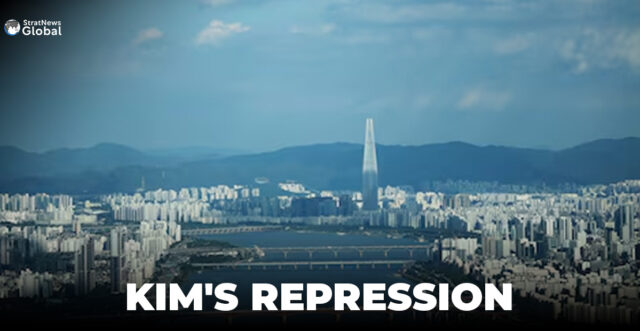Repression in North Korea has intensified in multiple areas, with increased surveillance, expanded forced labour, and more frequent executions, making it the world’s most restrictive country, according to a U.N. human rights report released on Friday.
The sweeping U.N. review comes over a decade after a landmark U.N. report found that North Korea had committed crimes against humanity.
The new report, covering developments since 2014, is based on interviews with more than 300 witnesses and victims who fled the country and reported a further erosion of freedoms.
Surveillance has grown more pervasive with the help of new technologies, while punishments have become harsher — including the introduction of the death penalty for offences such as sharing foreign TV dramas, the report said.
“Under laws, policies and practices introduced since 2015, citizens have been subjected to increased surveillance and control in all parts of life,” the 14-page U.N. report said in its conclusion. “No other population is under such restrictions in today’s world,” it said.
North Korea’s Geneva diplomatic mission and its London embassy did not immediately respond to requests for comment.
The DPRK said in response to U.N. rights investigators that it rejected a U.N. Human Rights Council resolution which authorised the latest report.
The report also found some limited improvements, such as reduced use of violence by guards in detention facilities, and new laws that appear to strengthen fair trial guarantees.
North Korean Nepotism
Kim Jong Un seems to have further cemented the status of his daughter, Kim Ju Ae, as his probable successor after she joined him during a visit to China, South Korean lawmakers said on Thursday, quoting information provided by the nation’s intelligence agency.
Ju Ae stayed at the North Korean embassy and avoided the public spotlight during the Beijing visit, but just being on the overseas trip with her father was “enough to build a narrative” as the regime’s likely successor, said Lee Seong-kweun, a lawmaker on South Korea’s parliamentary intelligence committee.
“It was suggested that Kim Ju Ae’s status was solidified as a likely successor by showing her occasionally, while enabling her to build overseas experience but not to appear at public events,” said Park Sun-won, another lawmaker on the committee.
Also, North Korean officials were spotted wiping out traces in order not to expose the biological information of Kim and his daughter during the China trip. This included using a special plane to transport garbage and the pair staying at the North Korean embassy, South Korea’s spy agency told the lawmakers.
(With inputs from Reuters)





